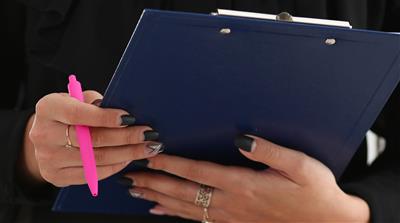Ofsted - its history and current practices

Many people will know Ofsted as an institution which assesses the quality of our schools, inspecting them at regular periods, and providing judgements such as `outstanding,` or `needs improvement.` Few though will be aware of the history of this organisation, which can trace its origins to a parliamentary decree of the late nineteenth century.
In 1883 parliament began issuing an annual grants to both the British and Foreign School Society, and the National Society for Promoting Religious Education - two institutions which assisted the Church of England in schooling children of poor families. By 1847 this grant had expanded to Roman Catholic elementary schools, which had recently been established by the Catholic Poor School Committee.
After the Educational Act of 1902 - more commonly known as the Balfour Act - an act of parliament which provided much funding to schools, while reducing the divide between denominational groups, existing inspections were increased in scope to state funded secondary schools. Over the years the inspections became more regular, with each borough generally conducting their own assessments of local schools.
Things continued along these lines for many years until the early 1990`s, when the government of John Major, concerned about a lack of standardisation and variance in assessment criteria across the country, created a national scheme of inspections. Initially formed out of HMI (Her Majesty`s Inspectorate), this body eventually became known as the Office for Standards in Education (OFSTED). The Education of Schools Act decreed that HMI would be responsible for supervising the inspection of each state funded school throughout the United Kingdom.
Another change occurred in 2001, when Ofsted began inspecting and registering daycare and childminding services in England. Prior to this checks were conducted by local authorities, acting under the edicts of the 1989 Children Act. In 2006 and 2007 the most recent changes were implemented, where ofsted it began to structure itself like a business, adopting a chair, regional officers, while also submitting an annual report to parliament
In its current form Ofsted inspects `services providing education and skills for learners of all ages,` while also `inspecting and regulating services that care for children and young people.` The organisation has around 1800 employees, along with around 2000 inspectors, who make regular checks on schools throughout the United Kingdom. As part of their normal routine they will notify a school on the day before they plan to visit it, phoning them between 10:30am and 2:00pm; but if they believe there is a good reason to inspect a school immediately, they can arrive on the day, the lead inspector normally phoning 15 minutes before they arrive. A school can request the visit be deferred, but only in exceptional circumstances will such a postponement be granted.
All new schools and academies can expect to be inspected during the first 3 years of their inception - typically during their third year, as this gives the institutions a chance to settle into a routine. Schools that are judged to be `good` or `outstanding` can expect to receive an inspection once every four years, subsequent visits being to ensure standards have not slipped. These repeat visits are termed `ungraded inspections.` Of course if a subsequent visit reveals a decline in standards a full and `graded inspection` will be conducted. There are deviations from this rule however, with `good` schools often receiving graded inspections, in order to ensure there are no hidden issues that may have appeared.
The other three grades awarded by Ofsted are `requires improvement` and `inadequate.` Requires improvement is a grade given to a school which `is not yet good but overall provides an acceptable standard of education.` Any school receiving such a classification can expect a graded assessment within the next 30 months.
Schools judged to be `inadequate` are placed `in a category of concern` according to the Ofsted website. They are judged to be performing poorly, to have serious weaknesses, or require special measures. Failing to provide an acceptable level of education for its pupils, the Secretary of State for Education shall change it into a sponsored academy, which shall receive regular inspections, along with assistance to help it carry out the changes necessary for improvement.

 Add a Comment
Add a Comment